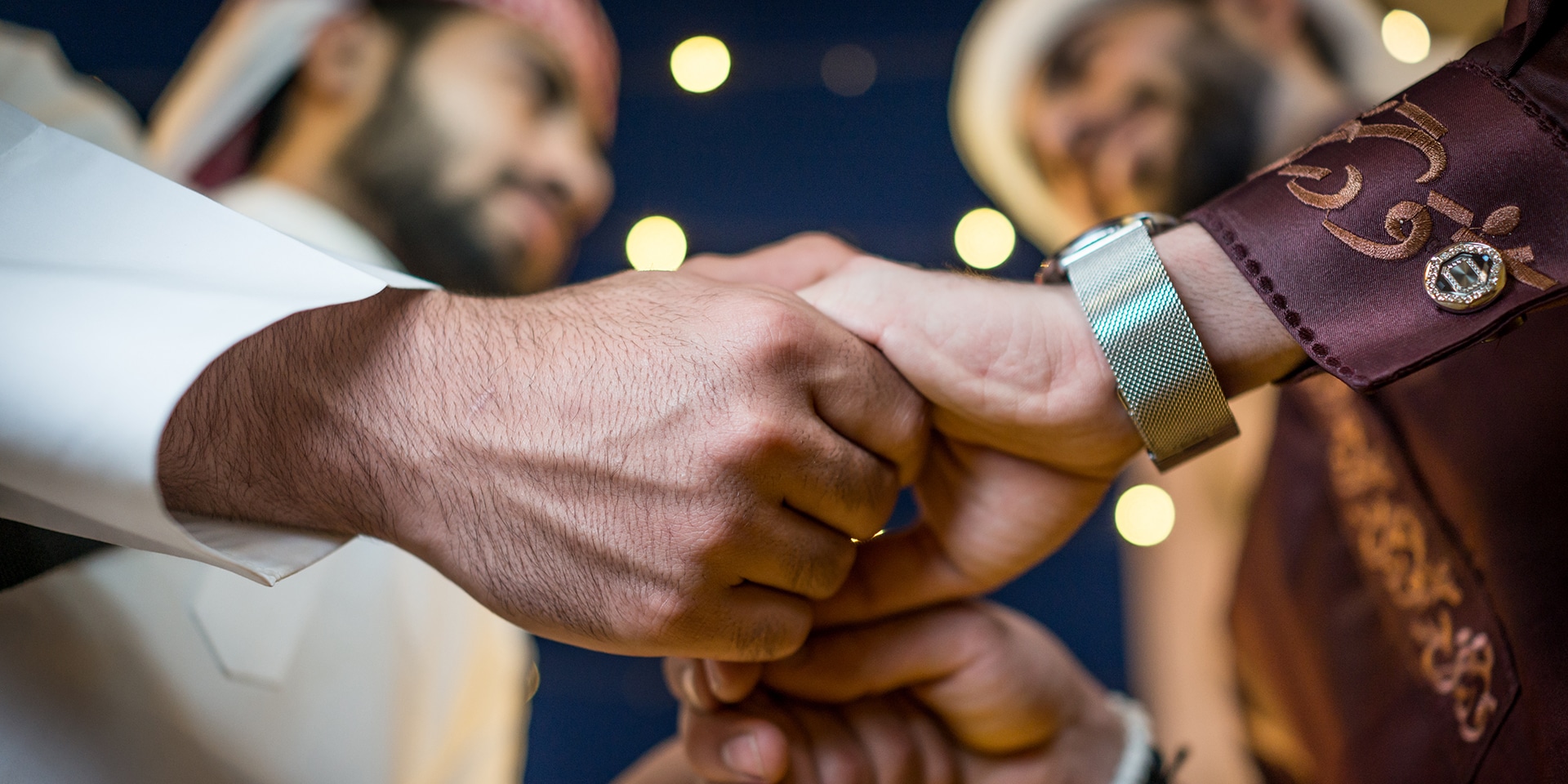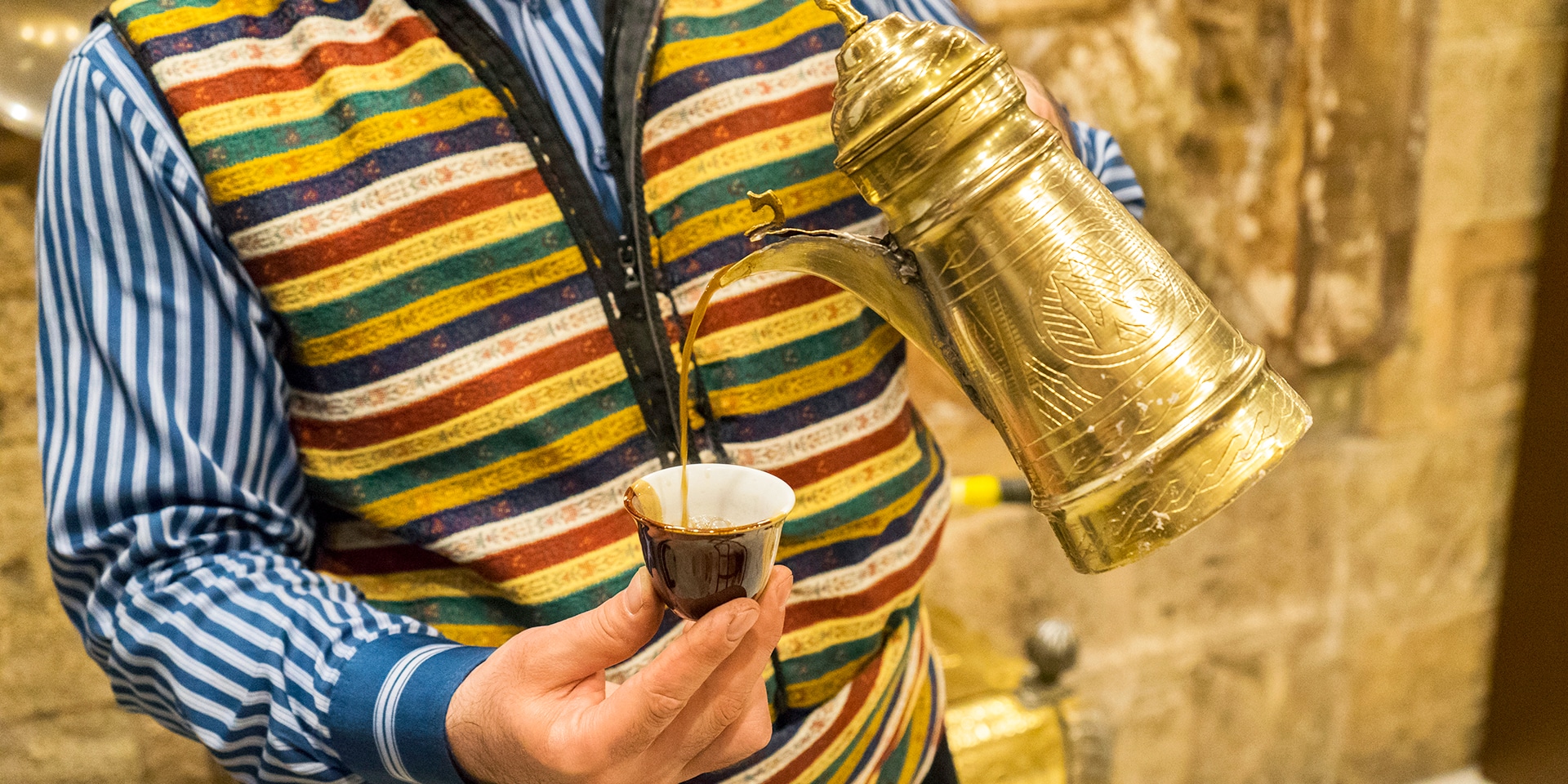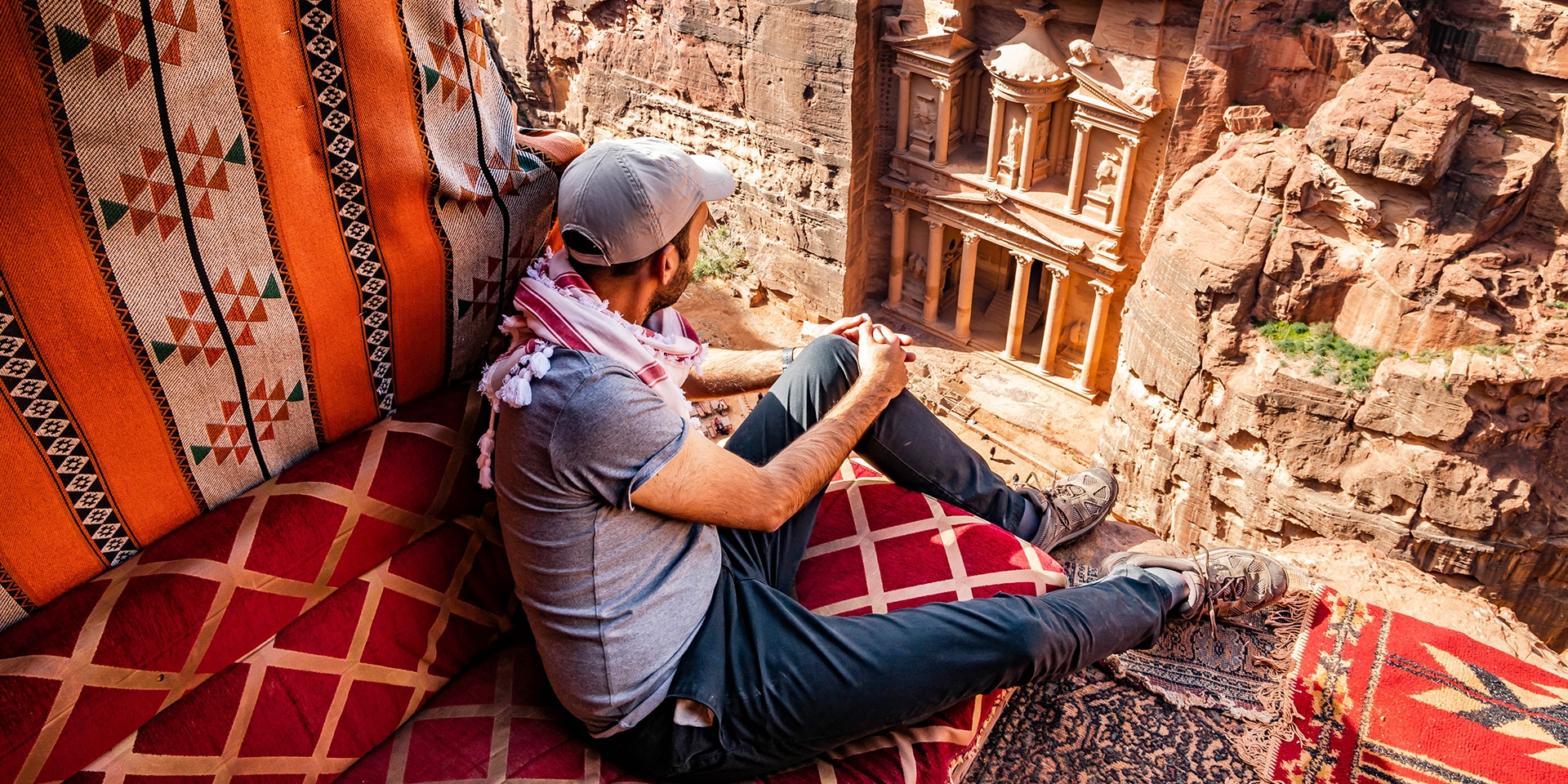If there’s one quality that defines Jordan’s culture more than any other, it’s the warmth of Jordanian hospitality. Generosity is intrinsic to the way of life here and has its roots in Bedouin culture, where the kindness of strangers can often be essential to the survival of nomadic tribes in the unforgiving Arabian desert.
Invitations for tea or a home-cooked meal are often spontaneous, but always sincere, and can be the most effortless (and therefore the best) kind of cultural exchanges. But for visitors who’ve never encountered such hospitality before, it can all seem quite daunting, especially if they aren’t aware of the rules around local etiquette.
While most Jordanians are too polite to point out cultural faux pas or hold them against tourists, here are some tips on etiquette and acceptable behavior to improve the quality of your local interactions. Attempts at being respectful will earn you the appreciation of your Jordanian hosts.
Dress Codes for Men and Women
To earn the respect of Jordanians, the importance of modest attire, for both men and women, cannot be stressed enough. Though the soaring temperatures might make you want to reach for shorts and tank tops, you’ll be surprisingly comfortable (and blend in much better) when dressed in loose, light fabrics that cover your upper arms, shoulders and knees.
While it isn’t uncommon to see tourists in Petra dressed like they would be back home, you won’t see many locals (even men) in shorts or with bare shoulders, though Amman is a modern city, and you’re likely to see the best of street fashion.
Knee-length shorts for men are acceptable in Amman, but to locals, men appear better groomed when they’re dressed in trousers or jeans (that aren’t ripped). Women are advised to dress modestly in public.
Avoid outfits that show cleavage or are transparent. Swimwear and bikinis are best reserved for hotel beaches and swimming pools (not on public beaches).
What to Expect During Social Interactions

When greeting someone, stand up and greet them with the phrase “Assalamu-‘alaikum” (Peace be upon you). Reach out for a handshake only if the person you are greeting is of the same gender; conservative Muslims might not want to shake hands with members of the opposite sex. In such cases, wait for them to extend their hand, or place it upon their heart as a sign of respect, in which case you should follow suit.
Don’t be alarmed if you’re greeted the Arab way, with a few pecks on each cheek; it conveys warmth and affection and is acceptable when coming from a person of the same gender.
If you want to be left alone or would like to decline an invitation, it’s best done with a smile, your right hand on your heart and a polite excuse about having to be somewhere else.
Know Before You Go to a Local Home
If you’re accepting an invitation to a local’s home, bring Arabic sweets, chocolates, dates or small gifts for their children as a token of appreciation.
Take off your footwear before you enter the home. In traditional homes, men and women dine separately, though the women of the household may serve the men. In many cases, foreign women, if accompanied by a male companion, will dine with the male host and other adult male family members.
Always accept when your host offers Arabic coffee; it signifies their ability to receive guests. If you want more, hold out your cup (the norm is three servings). The right way to indicate you wouldn’t like more is to gently shake your cup from side to side.
If seated on the floor or at a low table, tuck your feet under your body to ensure that the soles of your feet are not pointing at another person.
Dine Like a Jordanian

Meals usually begin with hot and cold mezze (appetizers) served with bread and must be eaten with your right hand. If you find yourself dining on mansaf, a traditional dish made of slow-cooked lamb, a fermented yogurt sauce, and rice or bulgur, from a common platter, the host will be sure to direct food in front of you.
With the first three fingers and thumb of your right hand, gather the rice and lamb into bite-size balls for each mouthful. A useful tip is to eat slowly; you might find additional helpings appear in front of you as soon as you finish. The meal is usually followed by coffee or sweet tea.
Before You Point Your Lens
Photographing locals, especially women, without their permission, whether in modern cities such as Amman and tourist attractions like Petra or in rural areas, is disrespectful, intrusive and indecent.
Be conscious of where you point your lens, always ask for permission in advance and when in doubt, refrain from photographing people. Steer clear of photographing military installations and international borders.
LGBTQ Travelers in Jordan
Homosexuality is legal in Jordan, but given that the country is predominantly Muslim, it isn’t openly accepted or approved of. As such, it’s best to refrain from public displays of affection, even for heterosexual couples.
Travel Advice for Women in Jordan
Jordan isn’t new to women travelers, even those traveling by themselves (though it may be thought of as unusual in some regions). Muslim culture, in general, is highly respectful of women, and Jordan is safe for female travelers.
To avoid attracting unwanted attention, especially in small, rural towns, dress modestly and carry a scarf to cover your hair. Expect questions about your marital status and kids; a wedding band or ring on your finger helps you to be seen as honorable in the eyes of conservative locals.
In taxis, women should sit in the back seat behind the driver. Be aware of unspoken rules; as it would anywhere, prolonged eye contact with a man can indicate interest and availability.




